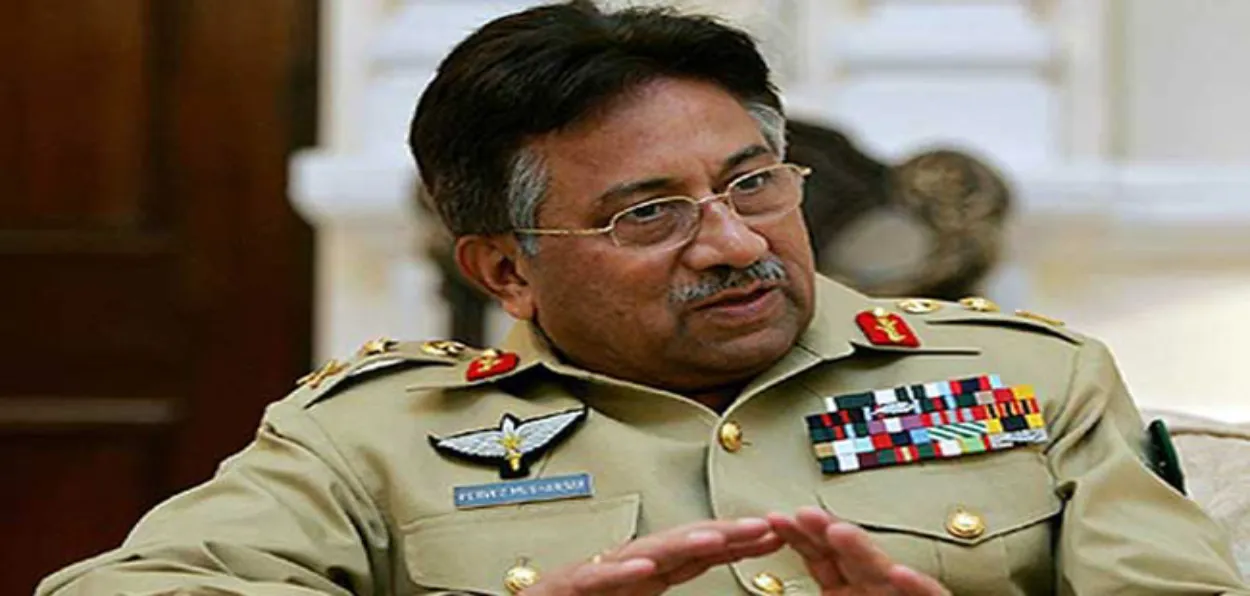
Aasha Khosa/New delhi
In 1995, Pakistan was close to being taken over by a group of the renegade Army officers led by a General-rank officer who wanted to assassinate the then Prime Minister Benazir Bhutto and declare the country as an Islamic system of Khilafat, on the lines of the ISIS.
This secret has come out as the Pakistan’s Supreme Court recently dismissed the plea of two officers, involved in the conspiracy and later convicted. The details of the aborted coup and the court proceedings have been accessed by the Dawn newspaper of Pakistan.
The case has once again exposed the intrinsic link between the Jihadi terrorist group and the Pakistan's Military.
It’s of interest for Indians to know that Harkat-ul-Jihad al Islami (HuJI) was involved in major terror attacks in Kashmir and rest of India. The group was responsible for several attacks in Bangladesh as well and it has presence in 30 countries.
The case also confirms the general view that Pakistan created jihadi outfits to attack its enemies like India and ended up being overwhelmed and subverted by the same groups.
Qari Saifullah Akhtar was first arrested by the Dubai police and deported to Pakistan where he was let off on some understanding with the country’s spy agency ISI. He then turned approver in the coup conspiracy case.
The HuJI is a hybrid organization that, at one time, had authorized Military men as their members. The ISI and the State of Pakistan had backed their operation to the point where the group was found involved in a assassination attempt on the Army chief turned President General Pervez Mushrraf in 2003.
Musharraf narrowly escaped an attempt on his life on December 14, 2003, when a bomb blew up a bridge in the garrison city of Rawalpindi, next to the capital Islamabad, minutes after his motorcade passed it. The late leader has described in his autobiography On the Line of Fire how the blast caused his car to fly into the air.
Dawn says the conspiracy to overthrow the government and declared Pakistan a “truly Islamic” country with Shariah was hatched by Maj Gen Abbasi who wanted to become the Ameerul Momineen.
The two ex-army officers, Col Mohammad Azad Minhas and Col Inayat Ullah Khan, were arrested on Sept 26, 1995, along with now deceased Maj Gen Zaheerul Islam Abbasi, Brig Mustansir Billa and 38 other military officers on the charge of plotting to storm a corps commanders meeting scheduled to be held on Sept 30 that year at the General Headquarters in Rawalpindi.
The plan included the assassination of then-prime minister Benazir and army chief Gen Waheed Kakar, senior cabinet ministers and military chiefs, to be followed by the proclamation of the Islamic system of Khilafat with Maj Gen Abbasi as Ameerul Momineen.
The arrested conspirators faced a Field General Court Martial (FGCM) and awarded seven years of imprisonment to retired Maj Gen Abbasi, when a large cache of arms and military uniforms were confiscated. The FGCM also awarded a 14-year jail term to Brig Mustansir Billa for his alleged involvement in the attempted coup.
Col Minhas, and Col Khan who give a jail term of four years each in prison by a military court. Khan had challenged the sentence in the Supreme Court in 2000 and Col Minhas in the Lahore High Court which dismissed his appeal in May last year.
In their appeal before the SC, the two sacked officers contended that the sentence was without jurisdiction and with mala fide intention as a consequence of which they had been removed from the military service and their properties and other privileges confiscated.
The judgement, a copy of which is available with Dawn.com, said during the course of arguments, the two former officers contended it was mandatory for the prosecution to prove the main offence of “conspiring to wage a war against Pakistan” before starting trial against them on another charge.
ALSO READ: Five takeaways from the Delhi G20 Summit
The apex court upheld their conviction and found no merit in their pleas.
The expose confirms the dangerous interplay of terrorism and state Military power in Pakistan that has been documented inThe Spy Stories: Inside the secret world of the R.A.W and the I.S.I by Adrian Levy and Cathy Scott-Clark (Juggernaut).
